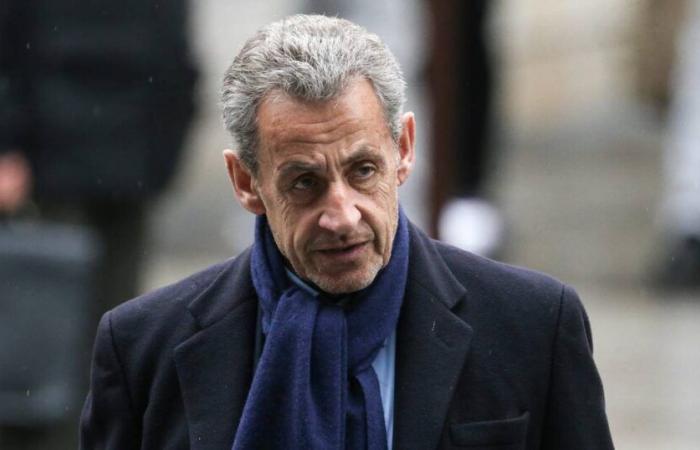
Nicolas Sarkozy will now operate under the regime of “home detention under electronic surveillance”. That is to say with an electronic bracelet. And the former President of the Republic will be treated like any other citizen sentenced to the same sentence.
Historical. The Court of Cassation rejected Nicolas Sarkozy’s appeal on Wednesday, December 18: his sentence of one year in prison under an electronic bracelet, previously suspended, is now applicable. Concretely, in its decision of May 17, 2023, now final at the national level, the Paris Court of Appeal sentenced Nicolas Sarkozy to three years of imprisonment, including one year in prison and two years in prison suspended in the so-called Bismuth affair. He is also deprived of civil rights for three years, which includes the right to vote, to stand for election or to hold a judicial office.
Concerning the firm part, the court of appeal decided to arrange it directly (“ab initio”) under the regime of “home detention under electronic surveillance” (DDSE), the technical term for the bracelet. However, the modalities remain to be determined.
The former President of the Republic is a prisoner like any other
As President of the Republic as he has been, Nicolas Sarkozy remains a citizen like any other. Without incarceration, he will not need any special regime – particularly for his protection – in a penitentiary establishment and will therefore be treated like any other citizen sentenced to the same sentence.
In fact, the general public prosecutor’s office of the Court of Appeal must now refer the matter to a sentence enforcement judge (JAP) in Paris. This JAP will then summon Nicolas Sarkozy to appear before him, in principle within 20 days (but these deadlines may vary). During this meeting, the convicted person must provide supporting documents that the JAP will examine in order to determine the place of assignment (home) and release times, during the week and at weekends. For example, a convict may be allowed to leave his home between 7 a.m. and 6 p.m. in order to go to work.
Specific obligations can also be added, for example not to exercise a profession linked to the offense or to pay the damages to which he was sentenced (there were none in this case). The JAP will then issue an order which sets these terms, a decision which the convicted person cannot appeal. The judge will also determine the date on which the bracelet will be placed. By law, the order must be issued within four months of the sentencing decision. But again, deadlines may vary depending on the case.
And the Parc des Princes in all this?
This is the question that burns on our lips: will the former head of state be able to encourage PSG at the Parc des Princes? Concretely, the JAP will decide the distance that the former president cannot exceed from his home, i.e. between one and ten kilometers. On the scheduled day of installation of the bracelet, surveillance agents, who report to the prison administration, will go to the convict’s home to adjust and install the device. From there, if the condemned person is not at home at the set time, an alert will be triggered. Which would expose Nicolas Sarkozy to incarceration.
This is the example of the Balkany. In February 2022, the Rouen Court of Appeal finally decided to place the former LR mayor of Levallois-Perret (Hauts-de-Seine). Due to numerous incidents, the electronic bracelet placement of the couple – who is serving their conviction for massive tax fraud – had been revoked two months earlier. This is because the Balkany couple had managed to violate at least a hundred conditions of their house arrest. A performance.
No more conferences abroad, unless authorized
If he wants to change jobs, place of residence or if he wants to travel abroad for one of the many conferences he hosts, Sarkozy the condemned must request prior authorization from the JAP. Then, over the months, the judge will have to decide whether to grant sentence reductions to the convicted person, based on the reports from the Prison Integration and Probation Service (Spip) which follows him on a daily basis.
A non-detained prisoner, Nicolas Sarkozy, who will celebrate his 70th birthday on January 28, will then be able to apply for conditional release before halfway through his sentence. This request would be considered but not necessarily granted. The electronic bracelet is the number 1 facility in France: as of November 1, 2024, 15,591 people wore one, out of a total of 96,569 prisoners, according to figures from the Chancellery. Nicolas Sarkozy will be judged in 2025 in what is called the “Libyan affair”, i.e. the financing of his 2007 presidential campaign.





